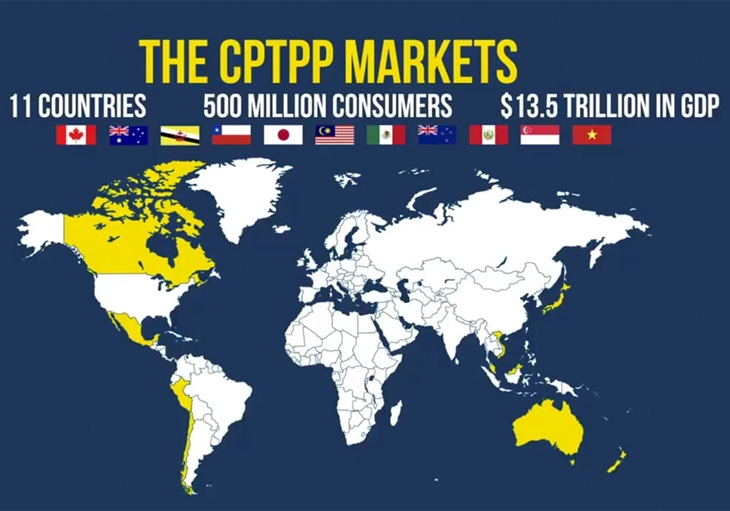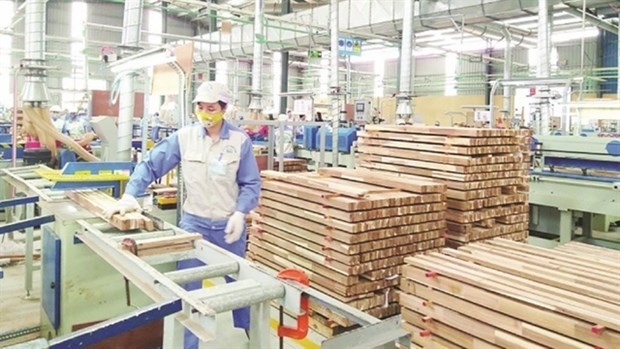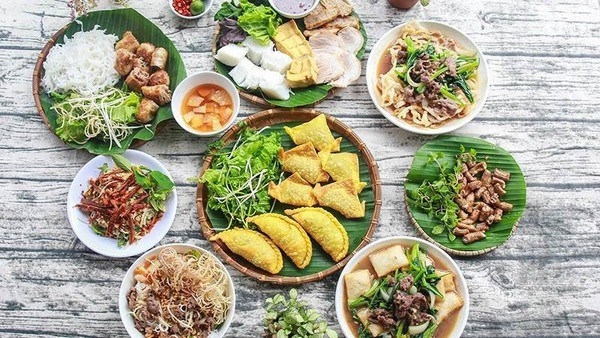Why CPTPP is good for New Zealand
Sunday, March 10,2019
AsemconnectVietnam - Given the long and heated history of negotiations on this major trade deal, it’s not surprising that there has also been plenty of debate around what it means for a country like New Zealand.
Some of the concerns that have been raised include fears New Zealand is giving up its sovereignty, or whether trade benefits the average New Zealander. The criticism from some quarters will inevitably prompt some New Zealanders to question why this country is so keen to conclude this agreement.
From a sheep and beef perspective, continued efforts by our government to liberalise trade (including through deals like the CPTPP) are of huge importance to our general economic well-being and make a real and direct difference for our farmers, processing companies and wider regional communities.
Trade has always been New Zealand’s lifeblood. For example, over 90 percent of New Zealand’s sheepmeat and 80 percent of our beef production is exported, representing 3.2 percent of New Zealand’s GDP.
These exports raise the living standards of thousands of average New Zealanders. Every day these exports support 80,000 jobs (and families) across New Zealand, mostly in the regions.
These jobs include on farms, in processing companies, and in supplying services like transport companies, shearers, and rural contractors. Not to mention the recycling of wages through local shops, restaurants, and many other small businesses in our regions and in our cities.
Meat processing is New Zealand biggest manufacturing sector, so just think about the impact the closure of a major manufacturer would have in your community.
Despite the progress that has been made, trade in agriculture remains highly protected and we face high tariffs and other rules aimed at trying to prevent our exports in many markets. We also have to compete against highly subsidised producers from countries.
CPTPP is a good deal for our sector, but the benefits from this deal will flow through to thousands of people. It simultaneously opens multiple markets in Japan, Mexico, Peru and Canada where we face tariffs of up to 50 percent, and puts us on a level playing field with other major red meat exporters in the Asia Pacific region, such as Australia and the European Union.
Since Australia’s 2015 trade agreement with Japan, their beef exports to Japan have increased by $NZ1 billion, while New Zealand’s have fallen by $NZ30 million. Japan is New Zealand’s largest market for high valued chilled beef exports and we would like to try and grow this further.
But whilst demand for beef in Japan is growing, New Zealand has lost significant market share.
We understand that people worry about New Zealand losing sovereignty and that the Government needs to balance this in any trade deal.
We think the Government did a good job of this last week in Vietnam with preservations around PHARMAC, restricting the use of investor state provisions, foreign ownership of land and housing, and freedom to regulate for our own environmental protection.
So, you can see why Beef + Lamb New Zealand welcomes the agreement, capturing all the market access gains of the previous TPP agreement while making new gains in addressing some of the issues that caused concern among many New Zealanders.
The use of the word ‘Progressive’ in the new title is no accident. It reflects a trend where countries – such as New Zealand and Canada are increasingly seeking to secure the benefits of liberal trade, but not at the expense of the freedom of countries to protect the genuine and strongly-held values of their citizens.
The deal is of course yet to be ratified by each country’s Parliaments. The public will get the chance to have its say through select committee and the parliamentary process.
But ultimately, CPTPP is good for our farmers, good for our regions and good for the country.
It’s also another boost to New Zealand’s sheep and beef sector, which has changed considerably over the past few decades.
We’re no longer a commodities exporter of carcasses, but a food producer, capturing more value from our markets for our farmers and the country. This agreement will play a pivotal role in accelerating this continued development.
Source: beeflambnz.com
CPTPP accession process for UK begins
Vietnam, Japan to work closely for effective implementation of CPTPP
Vietnamese businesses look to further optimise opportunities from CPTPP
CPTPP – a booster to Vietnam – Canada trade
CPTPP benefits Vietnam-Canada trade ties: experts
CPTPP – a booster for Vietnamese exports to Latin America
Webinar spotlights Vietnam-Canada trade in CPTPP in post-COVID era
Businesses advised to outline long-term vision for CPTPP benefit
Vietnam gains higher exports to Canada, Mexico partly due to CPTPP
CPTPP eases pathway for Vietnamese exports to Canada, Mexico
Vietnam posts trade surplus with other CPTPP members
Vietnam posts positive trade balance with CPTPP
CPTPP: How Japan Became the Adult at the Trade Table
CPTPP to advance Vietnamese farm produce’s foothold in global supply chain

Plan on implementing Decision No. 327/QD-TTG dated March ...
Concretize viewpoints, objectives, tasks and solutions of the plan in accordance with practical conditions of the locality, associating ...Plan on implementing national environmental protection ...
Implementation plan of marine aquaculture development ...
Program on conservation and development of Vietnamese ...
Plan on improving quality of human resources to 2025 and ...

Efforts taken to turn culinary culture into national ...
The Vietnam Cuisine Culture Association (VCCA) is taking steps to implement a project to build and develop Vietnamese culinary culture ...Vietnamese cuisine making a name for itself with ...
Vietnam advance to next round of AFC U20 Women’s Asian Cup
Cultural tourism and traditional values promoted through ...



